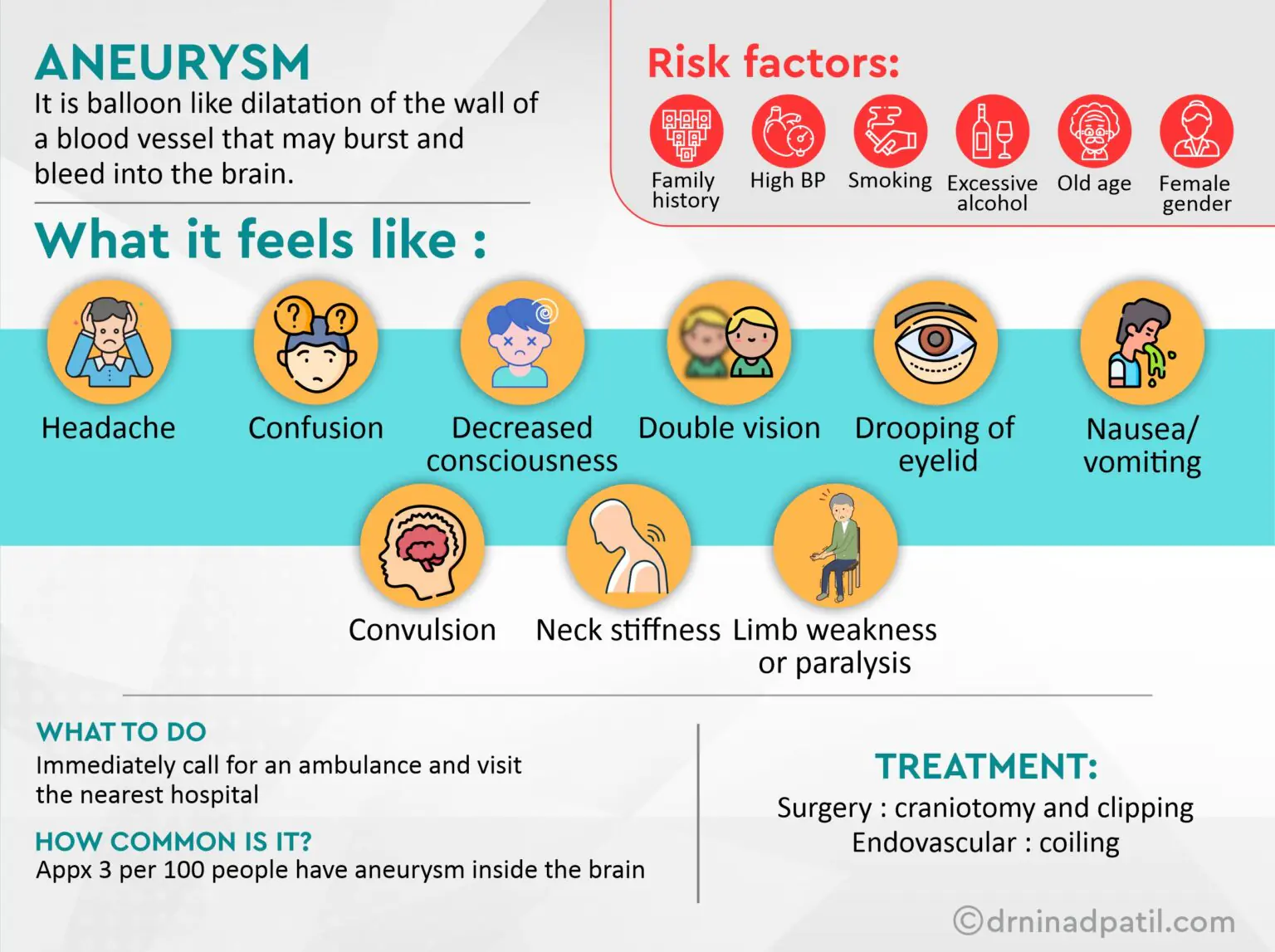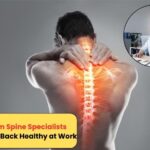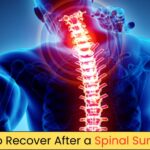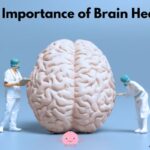
Brain Aneurysm Treatment in Pune
An aneurysm is a balloon-like bulge that forms in the wall of a blood vessel. This bulge can grow over time and eventually burst, causing bleeding into the surrounding area, which is particularly dangerous if it occurs in the brain.
Risk factors :
1. Family History: A family history of aneurysms can significantly increase the risk of developing one.
2. High blood pressure (hypertension): high blood pressure can exert excessive force on the walls of the arteries, leading to weakening and the possible formation of an aneurysm
3. Smoking: Tobacco use, especially smoking, is strongly linked to the development and progression of aneurysms.
4. Excessive Alcohol Consumption: Heavy alcohol consumption is associated with increased blood pressure and can also contribute to the development of aneurysms. Alcohol abuse weakens blood vessel walls,
5. Old age: Increasing age is a significant risk factor for aneurysms. As people age, their blood vessels naturally become less elastic and more prone to damage, increasing the chances of aneurysm formation.
6. Female gender: Women are more susceptible to aneurysms in some locations, like the brain.
Symptoms of Aneurysm :
- Headache: Sudden, severe headaches are a common symptom
- Confusion: Aneurysms can cause cognitive impairment, leading to confusion or difficulty in understanding surroundings or situations.
- Decreased consciousness: A person with a ruptured aneurysm may become drowsy or unconscious.
- Double Vision: Aneurysms, especially those involving the cranial nerves, can cause vision problems such as double vision.
- Drooping of eyelid: Also known as ptosis, this can occur when an aneurysm affects the nerves that control eye movement and eyelid function.
- Nausea/vomiting: Aneurysms can stimulate the vomiting center in the brain, causing nausea and vomiting,
- Convulsion: In some cases, aneurysms can irritate brain tissue, leading to seizures or convulsions.
- Neck stiffness: This symptom may occur if the aneurysm causes irritation or inflammation of the meninges,
- Limb weakness or paralysis: Aneurysms that rupture or compress certain areas of the brain can cause weakness or even paralysis of the limbs on one side of the body,
Causes Of Aneurysm :
- Genetic factors
- High blood pressure
- Atherosclerosis
- Smoking
- Age (people over 50 are at higher risk)
- Connective tissue diseases, such as Marfan syndrome and Ehlers-Danlos syndrome
Infection
How Common Is It?
Approximately 3 out of every 100 people are estimated to have aneurysms inside the brain.
Aneurysm Treatment:
The two main approaches are:
- Surgery (craniotomy and clipping): A surgeon accesses the aneurysm through an incision in the skull (craniotomy) and places a small metal clip at the base of the aneurysm to block blood flow and prevent rupture.
- Endovascular coiling: A catheter is inserted through an artery and guided to the aneurysm. Tiny coils are packed inside the aneurysm to redirect blood flow and promote clotting to seal it.
Dr. Ninad Patil is known for his excellence in brain aneurysm treatment in Pune. We prioritize understanding your concerns and ensuring that each patient receives the highest quality care and achieves the best possible outcomes.




